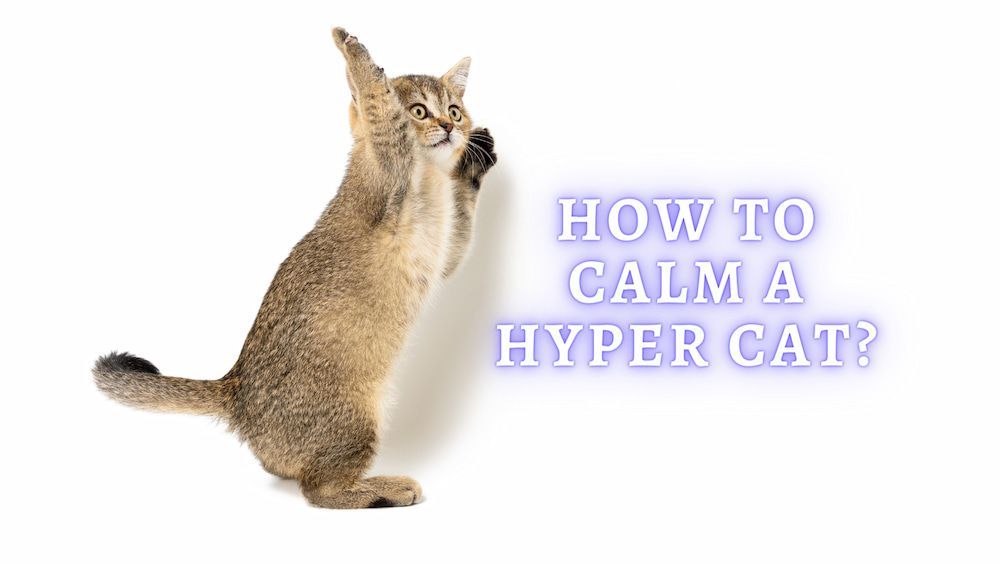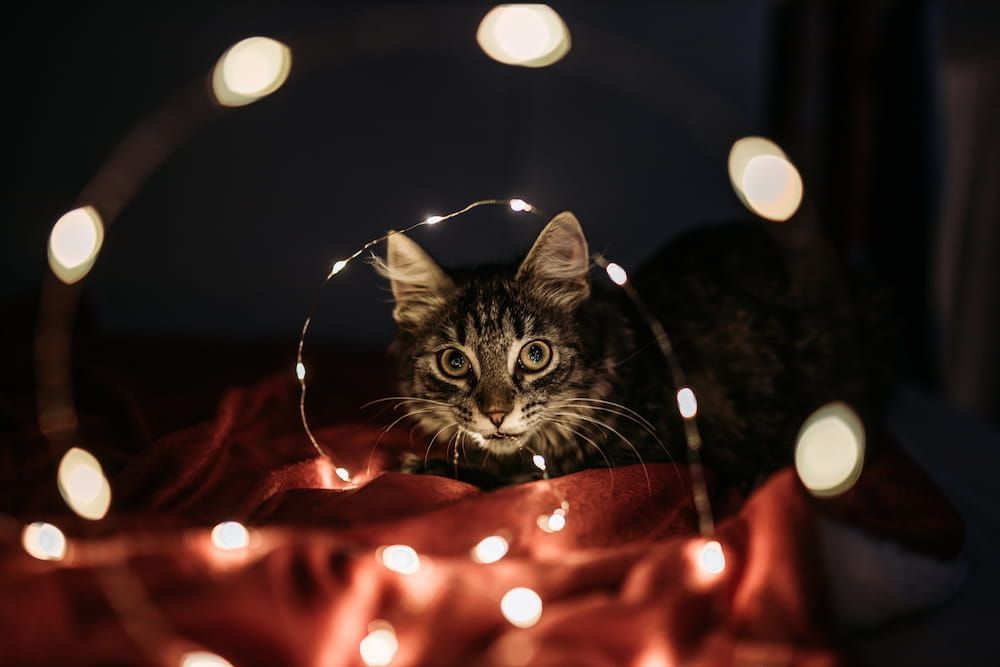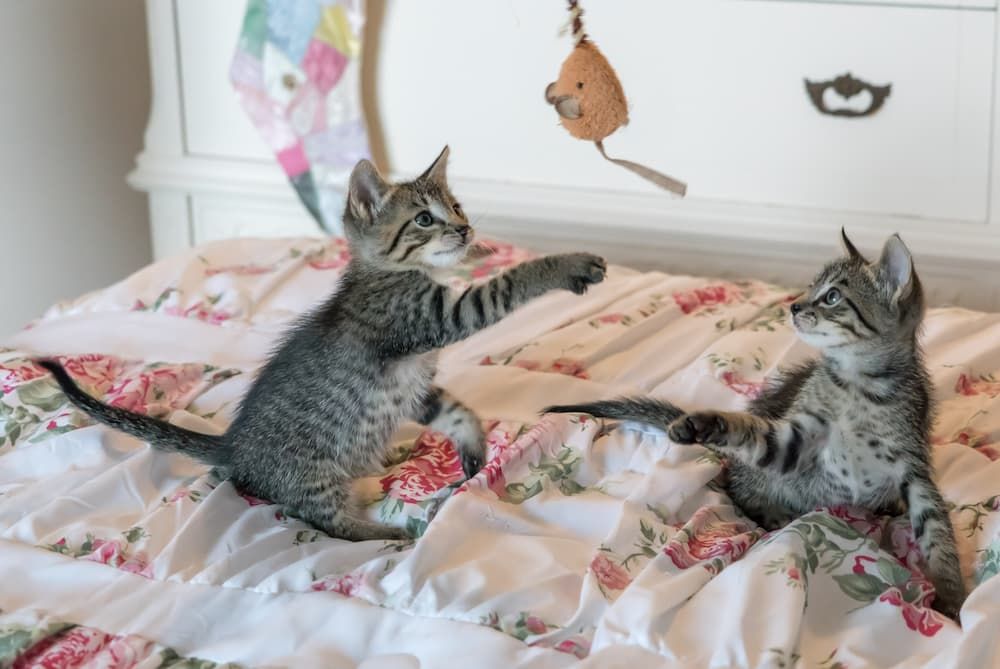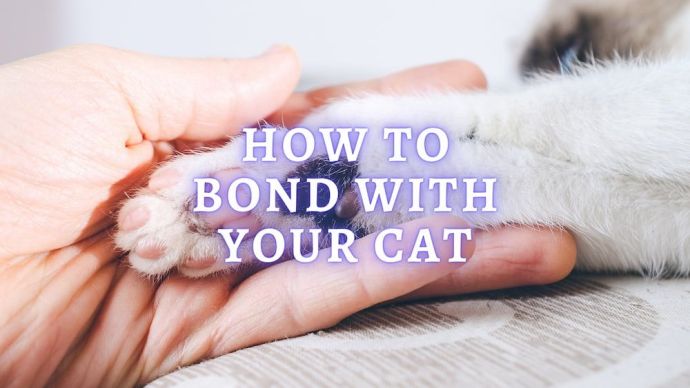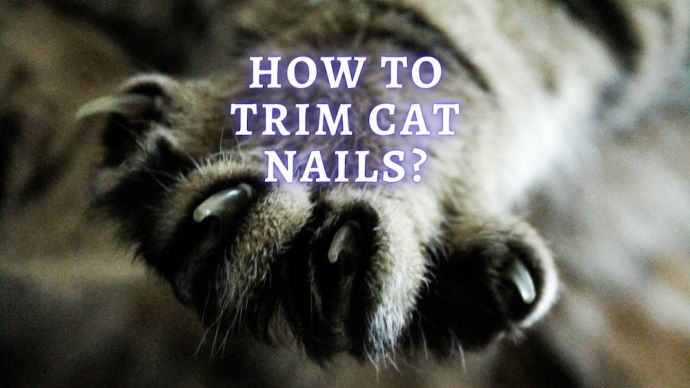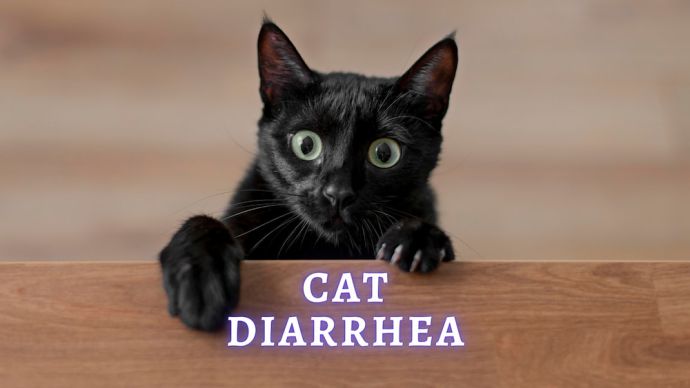How to Calm a Hyper Cat? 8 Ways to Get Your Cat Calm Down
Written by:
Author: Carol Young
Carol has worked in specialty, emergency, mixed animal and general veterinary practices, and enjoys all aspects of veterinary medicine. Her special areas of interest include anesthesia, critical care, emergency, dentistry, internal medicine and small animal nutrition.
View all 62 articlesLearn about our editorial process and veterinary review board.
Viewed: 681
Updated on: 06/30/2021
Cats make wonderful pets and companions, and they can be an endless source of entertainment, companionship, and love. However, if you have ever had a kitten or a very energetic pet who is a night owl, you may become annoyed when your kitty decides to run around the house, jumping from your bed to the dresser to the windowsill at 2 am. It’s during times like these where you may ask yourself, how to calm a hyper cat? This article will discuss why some pets have an abundance of energy and some things you can do to help calm a hyperactive kitty.
Why Is My Cat So Hyper?
There are several reasons why a pet can be hyper. For example, kittens are naturally high-energy compared to older adult cats. This is because they have a faster metabolism. They are growing and just starting to explore the world around them. Felines can also be hyper if they have metabolic issues, such as hyperthyroidism caused by an overactive thyroid. Also, some pets react to catnip by becoming high-energy and hyperactive and may feel like bounding around the house at high speed. If you are wondering how to calm your hyper pet, there are several things you can do, but it is essential to remember that sometimes a hyper cat is just exercising his hunting instincts.
Ways to Calm a Hyperactive Cat
There are several approaches you can take to help calm your energetic pet, and most of these involve getting creative and making a point to offer your cat plenty of fun activities and mental stimulation.
1. Organize playtime sessions
One way to help your hyper pet burn off excess energy is to offer some playtime. It’s widely known that exercise has many physical, mental, and emotional benefits for humans, which goes for pets. It may be that your hyper cat is bored, and needs a bit more exercise or more mental stimulation. Cats love to play hunter and pounce on things, and playtime sessions are a great way to bond with your kitty and have a bit of fun too.
2. Feed before bedtime
We all know how we feel after a meal, and it’s common to feel a bit sleepy with a full belly. This may work for your pet too. Depending on your daily schedule, try feeding your kitten just before bedtime. Many cats will feel a bit sleepy after a meal, and expend energy to digest food rather than running around the house.
RELATED: How to Make a Kitten Sleep at Night?
3. Take your Cat for a walk
Another tactic could be to go for a walk together with your pet. Although it may not work for some owners, you can try using a pet harness and a leash and take your kitty out for a stroll or some outside exercise time. Of course, it’s essential to ensure that your pet will not be at risk of a dog attack or in danger from traffic or other factors. If you don’t think that your cat will do well on a walk, perhaps consider constructing a catio or purchasing an outdoor enclosure to give your pet exposure to nature.
4. Get your Cat a companion
If your pet is the only feline in your household, consider getting your kitty a friend. Contrary to popular belief, they can be social and get along with other cats and pets. If you think that your furry friend may do well with another feline, consider getting another pet. If you opt to go to a shelter or purchase a pet, it’s essential to ensure that your pet and the new pet are fully vaccinated and healthy and have recent veterinary exams. It’s also necessary to introduce the pet gradually and that your existing pet has a private area where he can go if needed. Cats are creatures of habit and dislike change, so it may take a while for your pet to adapt to a new companion. If you have any questions, consult your veterinarian.
5. Get some toys
Another solution is to offer your hyper pet some toys and enrichment activities. Items such as tunnels, food puzzles, lasers, and interactive toys can provide both physical and mental stimulation for your kitty. You can try inexpensive things like cardboard boxes as well. Try cutting holes into an empty shoebox, place cat treats inside, or make your scratching posts with carpet squares and remnants. You can also use plastic milk crates to create a jungle-gym or use a collection of plastic storage bins to make a kitty condo.
6. Encourage the “hunter” in your cat
Since cats are predators, they love to hunt and pounce on things. Items such as motorized mouse toys, lasers, and flashlight beams, or just a simple string of yarn pulled across a floor can engage your pet and stimulate his natural hunting instinct. You can also provide boxes for them to hide in as they await their prey to appear. Playing hunting games with your cat is also a great way to bond with your kitty and to offer him plenty of exercises.
7. Cat TV or a window
Cats are naturally curious creatures and love to see what is going on. Consider putting a bird feeder within view to offer your pet some feathered friend entertainment if you have a window. Cats love to watch birds and can keep themselves entertained for hours. If you don’t have a window with an exciting view, try choosing a pet-friendly TV channel that offers nature scenes of birds, rabbits, and other wild creatures. There are a wide variety of pet entertainment channels available on the internet as well. However, if you choose an interactive pet program, make sure that your pet won’t damage the screen with swatting and scratching.
8. Synthetic pheromones
Another solution to calm your energetic pet is to place pheromone dispensers around your apartment or home. Products such as Feliway are popular in helping to offer a calming atmosphere for hyper or stressed cats. [1] Feliway mimics a cat’s natural facial pheromones, which pets release when they rub their cheeks on doors, chairs, and even you. These pheromones mark these areas as being safe and familiar.
When Does Hyperactivity Become a Sign of a Health Problem?
Sometimes a hyper pet can be a sign of a medical issue that should be treated by your veterinarian.
1. Hyperthyroidism
This metabolic disorder is most often seen in older pets and is caused by an increase in the production of thyroid hormones due to an enlarged thyroid gland in the neck. Hyperthyroid cats are often restless. They may be hyper, overactive, cranky, and even aggressive. They may also vocalize quite a bit and may develop occasional vomiting and diarrhea. If you suspect that your pet may have a thyroid issue, contact your veterinarian.
2. Anxiety and Stress
Anxiety, stress, or a change in the household can also cause bouts of extreme hyperactivity. For example, cats who suffer from separation anxiety can also vocalize, and become excitable, hyperactive and apprehensive, especially if he notices that you are getting ready for work or on your way out the door. If you suspect that your cat is suffering from anxiety or stress, consult your veterinarian. It’s important to rule out any medical causes for the behavior.
3. Hyperesthesia Syndrome
This condition is characterized by an extreme sensitivity to a particular area of a cat’s body. Usually, it is on the back and in the area in front of the tail. Most owners will go to pet their pet in this area, and suddenly the pet will become aggressive, hyperactive, chase his tail, and may even try to bite. Some veterinarians feel that this condition is caused by an obsessive-compulsive disorder, whereas there is some evidence that the condition is neurological and a seizure-like syndrome. Research has also revealed a possible genetic component as this condition seems to be more prevalent in Siamese cats. [2]
READ MORE: Vet Advice on How to Raise a Kitten
FAQs
How do you calm down a hyper Cat?
If you have tried some suggestions above, such as taking your pet for a walk, organizing playtime sessions, or getting your cat a playmate, you can make an appointment with your veterinarian and consider some medications to help calm your kitty down. There is also a product called Feliway, which comes in the form of dispensers or sprays, and it produces a synthetic pheromone designed to calm and relax hyperactive or stressed cats. However, it is recommended to first try exercise, play, and interactive toys before exploring other options.
What do I do if my Cat has too much energy?
If you have a very active pet, especially a young pet, try offering your kitty plenty of exercises and mental stimulation. Cats are natural predators, and when they get hyper, they may just be doing what comes naturally. Try plenty of play and exercise with your kitty, and see if that helps him burn off excess energy. If these tactics don’t work, consider contacting your veterinarian for other solutions.
Why is my Cat extremely hyper?
Your cat could be very hyper due to age, diet, boredom, or medical factors, and you can address the first three with exercise, interactive toys, and other activities. If you think that your cat is hyper due to a medical condition, make an appointment with your veterinarian. If your cat is suffering from a health issue, your veterinarian can help.
What can I give my Cat to calm her down?
As mentioned above, you can try pheromone products such as Feliway to help calm your hyper pet, as well as offering interactive toys and puzzles. However, it is not recommended giving your cat any medications or supplements to help calm your cat without consulting your veterinarian first. Some holistic products are popular among some cat owners but always consult with your veterinarian first.
How do I get rid of my Cat’s energy?
If you have tried exercise, toys, puzzles, and pheromone therapy, make an appointment with your veterinarian. It is essential to have regular medical exams for your feline friend, and if you suspect that your cat is too hyper, and may be suffering from a medical condition, make an appointment with your veterinarian.
Can catnip make my Cat hyper?
Catnip is a popular product that can help cats engage in play and exercise. Some pets react to catnip by rubbing, flipping, rolling, or running around, and then suddenly relax and “zone out.” Other pets may become very energetic and hyper, and at times even aggressive if approached. The benefit of catnip is that it can also help reduce stress by inducing activity and play. Just as with humans, physical activity can help manage anxiety and promote a calm “cattitude.”
Can boredom cause my Cat to be hyper?
Boredom, together with lack of exercise and mental stimulation, can lead to hyperactivity in cats. As mentioned above, cats are natural hunters and enjoy stalking, pouncing, and chasing after “prey.” If our cat is not getting enough exercise and mental stimulation, this can lead to excess hyperactivity.
Article Sources:
- “FELIWAY Range.” Feliway, 26 Mar. 2021, feliway.com/us/Products/FELIWAY-Range.
- “Hyperesthesia Syndrome.” Cornell University College of Veterinary Medicine, 19 Apr. 2021, vet.cornell.edu/departments-centers-and-institutes/cornell-feline-health-center/health-information/feline-health-topics/hyperesthesia-syndrome.
READ MORE: Why is My Cat Panting?
 Cat Care Why Does My Cat Attack My Legs? 10 Reasons Why and What To Do About It (Vet-Approved Advice)
Cat Care Why Does My Cat Attack My Legs? 10 Reasons Why and What To Do About It (Vet-Approved Advice) - 46013
- 21
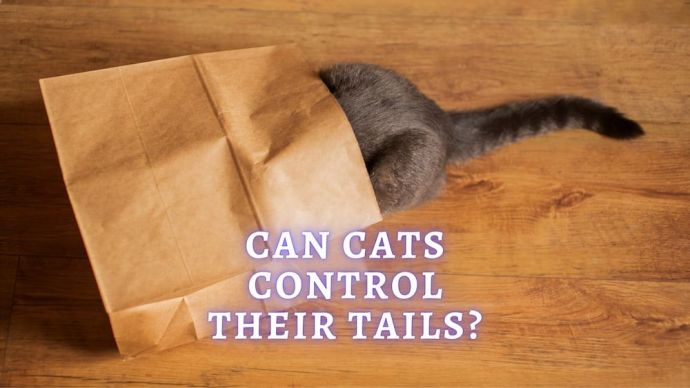 Cat Care Can Cats Control Their Tails? How Much Control Do Cats Have Over Their Tails?
Cat Care Can Cats Control Their Tails? How Much Control Do Cats Have Over Their Tails? - 113
- 0
 Cat Care Why Does My Cat Attack My Legs? 10 Reasons Why and What To Do About It (Vet-Approved Advice)
Cat Care Why Does My Cat Attack My Legs? 10 Reasons Why and What To Do About It (Vet-Approved Advice) - 46013
- 21
 Cat Veterinary Tips Cat Stomach Gurgling: Vet Advice on Why is Your Cat Stomach Gurgling?
Cat Veterinary Tips Cat Stomach Gurgling: Vet Advice on Why is Your Cat Stomach Gurgling? - 36469
- 4
 Cat Veterinary Tips My Cat Lost its Voice: Can Cats get Laryngitis? (Vet Advice)
Cat Veterinary Tips My Cat Lost its Voice: Can Cats get Laryngitis? (Vet Advice) - 23554
- 13









